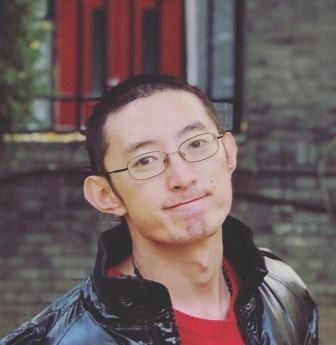The latest dispute between China and the U.S. over the Houston Rocket manager’s tweet and the NBA marks the apparent spillover of confrontation between the largest two economies from trade to non-political arena and also from official to public sphere. When Chinese propaganda apparatus started operation, Houston Rocket and NBA joined the long and growing list of entities in recent years that felt the heat of China’s economic coercion and public nationalist anger for overstepping the red line of Chinese communist regime. As the Chinese government is accused by western media of imposing “political correctness” and compromising “freedom of speech”, the nationalists come to the rescue and defend the government by refuting the charges with a typical “Whataboutism”.
The nationalists respond to the criticism by making a counter-accusation with rhetoric usually going like “What about ‘political correctness’ in your own society (western democracies)? There’s no absolute ‘freedom of speech’ even in the West”. Based on the assumption that there’s no difference between the prevalent “political correctness” in western society and the “political correctness” pursued by the Chinese government, the tu quoque (Latin for “you also”) discourse sounds solid on the grounds that it’s a fact some “political correctness” is taking hold in western democracy and individuals or organizations will be accountable for making some sort of speeches in public. However, the assumption itself is problematic and misleading because the western “political correctness” is fundamentally different from the Chinese equivalent.
First, they include different sets of values. The dominant “political correctness” in western democracies represents liberal values that put emphasis on avoiding discriminatory rhetoric or behaviors that may be deemed as marginalizing or insulting individuals based on race, religion, sexual orientation, etc. In contrast, the Chinese version of “political correctness” has another value system which consists of political security, sovereignty and territorial integrity which are collectively referred to as “core interests”. It is politically correct for entities and individuals to follow official rhetoric and circumvent political taboos when making public statements. The difference lies in that, whereas liberal one focuses on protection of rights of individuals with non-mainstream race, religion, gender and sexual orientation, the Chinese one centers around safeguarding the inviolability of national interests and infallibility of Party-state rhetoric.
Second, they are applied in different spheres. While governments in western democracies uphold “political correctness” to manage internal affairs in recent years, Beijing’s enforcement of “political correctness” repeatedly escalate into diplomatic spats. In the West, the German government crackdown online hate speech and actual attacks against Middle East migrants represent the best case in pursuit of “political correctness” in liberal democracies. Since the decision of the German Chancellor Angela Merkel to welcome asylum-seekers in 2015, there has been continuous online criticism and actual protest. Sensing the protest has been migrating from the earliest online derision and hate speeches into hate crimes against refugees across the country, former German Minister of Justice Heiko Maas spearheaded stricter regulation of online content and introduced Network Enforcement Act that holds social media networks accountable for users’ “unlawful” and “politically incorrect” speeches. On the other hand, the Chinese government uses “political correctness” to regulate words and deeds of foreign entities which operate within its borders and whose products are sold in its market. Statements and behaviors, intentional or unintentional, perceived by the regime as deviating from official rhetoric on political security and territorial integrity always invite public outrage and fervent nationalist emotions manipulated by propaganda apparatus. It usually develops into back-and-forth diplomatic quarrels, which is the case when Chinese authorities attempted to force U.S. airlines to change the reference to Taiwan as a part of the People’s Republic of China. Therefore, by making sure “political correctness” is observed, China is striving for international recognition and respect of its political lines as opposed to managing its internal issues.
Third, “political correctness” is imposed through different means in western democracy and China, respectively. Take Germany’s Network Enforcement Act for example, despite controversy around what should be defined as “unlawful” online content, the imposition of “political correctness” is at least within a legal framework. On the contrary, China has never passed any legislation to ensure “political correctness” is strictly followed. Rather, the Chinese authorities adopt a combination of extra-judicial means, including administrative order, economic coercion and manipulation of nationalism, etc., to compel foreign entities to make correction to and apology for their “politically incorrect” statements and behaviors.
Therefore, likening western “political correctness” to the Chinese one with “Whataboutism” rhetoric is an ignorance of basic variances between them in terms of embedded values, applicable spheres, and implementation means, and thus creates the misconception of hypocritical West and innocent China. For the nationalists, before making counter-argument that the West also uses “political correctness” to compromise “freedom of speech”, they should first understand what kind of “political correctness” is employed and what type of “speech” is punished in liberal democracies.
Image credit: Sgt. Mikki Sprenkle [Public domain], via Wikimedia Commons
The views and opinions expressed in this article are those of the author and do not necessarily reflect the official policy or position of The Geopolitics.

Keyu Chen served as financial translator for Goldman Sachs, J.P. Morgan and Deutsche Bank. He holds M.A. in international journalism and communication from Beijing Foreign Studies University. He’s interested in political communication, comparative politics and international relations.

